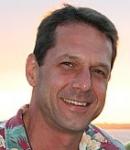An Energy Crisis?
We've done a lot of writing about high-energy beverages on this blog, wondering aloud when someone was going to step up and call for ingredient oversight, or at the very least, clearer on-pack labeling. This week, members of the medical community ...
October 23, 2008
We've done a lot of writing about high-energy beverages on this blog, wondering aloud when someone was going to step up and call for ingredient oversight, or at the very least, clearer on-pack labeling.
This week, members of the medical community took the big step and submitted paperwork to the Food and Drug Administration requesting federal regulation of energy drinks. The story, in yesterday's USA Today, interviewed Roland Griffiths, a neuroscientist at Johns Hopkins School of Medicine in Balitmore.
 "You can pick up a can and drink it and get 50 milligrams, which is the amount in a Mountain Dew, or pick one up and get 500 milligrams," Griffiths told the paper. "And that's enough to put someone who hasn't built up a tolerance to caffeine into caffeine intoxication, resulting in nervousness, anxiety, restlessness, insomnia, nausea, vomiting, tremors and rapid heart rate."
"You can pick up a can and drink it and get 50 milligrams, which is the amount in a Mountain Dew, or pick one up and get 500 milligrams," Griffiths told the paper. "And that's enough to put someone who hasn't built up a tolerance to caffeine into caffeine intoxication, resulting in nervousness, anxiety, restlessness, insomnia, nausea, vomiting, tremors and rapid heart rate."
Etc., etc., et al. I'm not going to, er, regurgitate the call for manufacturers to start shaping up. What worries me is the continuing affiliation of these products with health and wellness, even if they're already on the fringes of the category (they do, after all, contain ingredients like taurine and guarana, which are found in other, more holistic beverages).
Many beverages today promote energy as a component of their health message. If the industry can't determine where to draw the line, it might be time for supermarket retailers to start resetting their displays to isolate these increasingly outlandish, overhyped, hopped-up kids' drinks.
About the Author
You May Also Like






